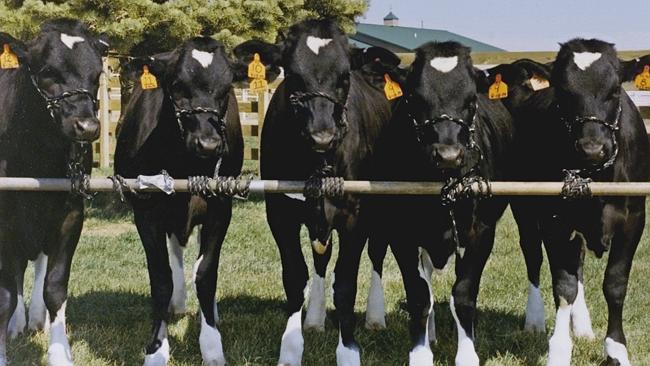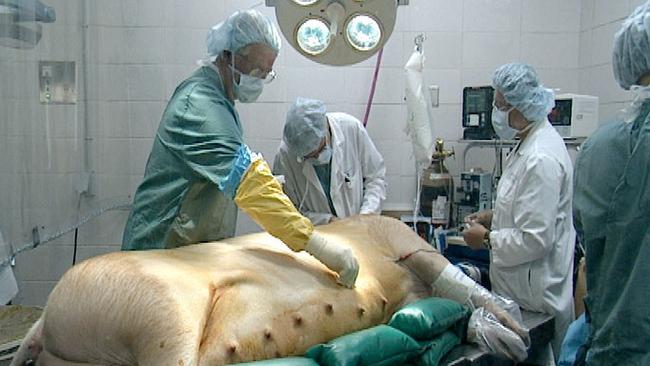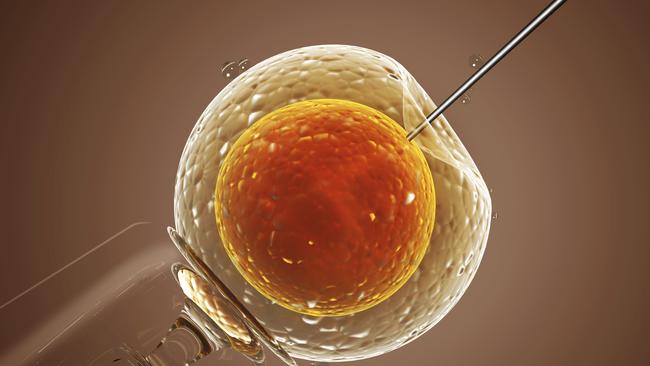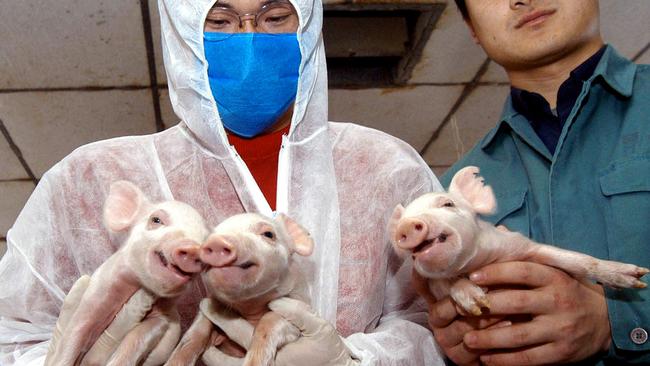China is opening the world’s largest commercial animal cloning plant. So where does that leave humans?
CHINA plans to open the world’s biggest factory of its kind. Some say it will help feed the country but others have serious concerns.

IT’S been less than two decades since Dolly the sheep was cloned and just over two years since humanity first tried a test tube burger.
A number of questions remain about the ethical and practical implications of cloning adult animals but there’s only two China is concerned with: How many? And how soon?
The country recently announced plans to open the world’s largest animal cloning farm in 2016 that will produce cows for meat, dogs for pets and even racehorses — all developed in a Petri dish.
In September, the European Union moved to ban cloned animal meat but while much of the world is consumed with the philosophical side of the debate, China marches forward.
The giant farm will be in the northeastern city of Tianjin and hopes to have an output of one million cloned cows a year by 2020.
When it’s up and running, it will dramatically reshape the way the world thinks about the natural world, and the food we eat.
AN ISSUE OF ‘PUBLIC PERCEPTION’
According to the United Nations projections, the global population is tipped to reach nine billion by the year 2050. Innovation and scientific ingenuity is crucial to feed the exploding population and the motivation behind the Tianjin plant is to provide another source of the country’s beef supply.
“For access to high quality protein in the future then I believe this method will become more widespread,” Dr Andrew French told news.com.au.
Dr French holds an honorary position at the University of Melbourne and works with the Centre for Animal Biotechnology. He views the commercial emergence of the cloning technology as “complimentary” to the traditional birthing process.
“The Nuclear transfer technology (cloning) will not replace traditional breeding, but instead will be an adjunct to the breeding and production strategies of livestock industries,” he said. “This will occur in much the same way as artificial insemination (AI) and multiple ovulation embryo transfer (MOET) programs have become part of traditional breeding programs.”
Concerns over animal welfare and the health and safety of consumers have dominated the concerns of those who oppose commercial animal cloning. But those on the other side view it as a natural, and necessary, evolution of the primary industries.
“We need to address the animal welfare issues and demonstrate the safe and effective implementation of this technology,” Dr French said. Once that is achieved he has “no concerns” over the use of the scientific method.
“The FDA has shown no difference in the milk, meat, wool, or any other product from the use of this technology,” he said. “Offspring from cloned animals are identical to naturally mated animals.”
Dr French also touted other benefits such as the ease in which a cell line or batch of embryos can be moved around the world compared to live animal shipments.

The unprecedented venture to establish the Chinese animal farm is a partnership between Chinese firm Boyalife Group and South Korean company Sooam Biotech.
Both companies declined requests for an interview but Sooam researcher David Kim told news.com.au the company greatly “believe” in the technology.
The chairman of Boyalife Group, Xu Xiaochun, said in a statement that Chinese farmers are struggling to produce enough beef cattle to meet market demand and cloning will help fill the gap. The centre will produce 100,000 cattle embryos a year, eventually increasing to one million.
The move will “edge the controversial science closer to mainstream acceptance”, the statement said.
Despite the growing momentum of the industry, concerns remain among the public over the use of the science, especially in a country that has been plagued by so many food scandals in recent memory.
Adding to the ammunition of critics is the fact Sooam Biotech’s founder Woo-suk Hwang was convicted in 2009 of embezzling government research funds, falsifying academic papers and illegally buying human eggs for company research.
“Anything connected to Woo-suk is going to be suspect,” Jaydee Hanson, senior policy analyst at America’s Center for Food Safety, told CBS. “I’m not expecting Boyalife to be around for long,” he said.
But aside from concerns over potential corruption, plenty of people are worried about the implications of the growing use of the technology and the potential that it will accelerate China towards the open practice of human cloning.
And they have good reason to be concerned.

FIRST COWS, THEN HUMANS?
The Tianjin plant will begin by producing commercially available cows, dogs, and racehorses but that is just the beginning of Xu Xiaochun’s ambitions.
The science behind the cloning is not new and it can now reliably be used to clone about 21 species and Xu has publicly admitted he has his sights set on humans.
Earlier this week the Boyalife chairman sparked controversy when he told AFP the only thing holding him back from replicating humans is the adverse public reaction.
“The technology is already there,” he said. “If this is allowed, I don’t think there are other companies better than Boyalife that make better technology.”
He said the firm does not currently engage in human cloning activities adding that it has to be “self-restrained” because of the likelihood of public backlash.
However he also pointed out that changing social views could soon lead the public acceptance of human cloning.
“Unfortunately, currently, the only way to have a child is to have it be half its mum, half its dad,” he said.
“Maybe in the future you have three choices instead of one,” he went on. “You either have fifty-fifty, or you have a choice of having the genetics 100 per cent from Daddy or 100 per cent from Mummy,” he said.
“This is only a choice.”




